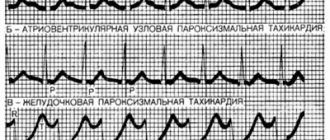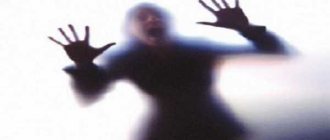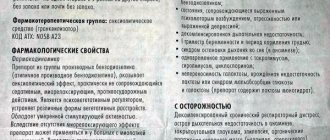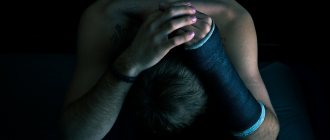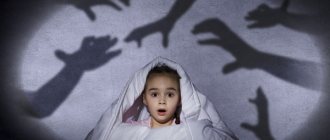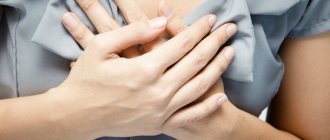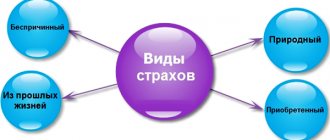Homeopathy eliminates panic attacks in the shortest possible time according to individual therapy. Sometimes treatment of panic attacks with homeopathy may be necessary even for a psychologically, at first glance, healthy person. This disease can make life unbearable.
Signs of panic attacks
During a period of minor anxiety or even its absence, a person can instantly be overwhelmed by a feeling of severe anxiety, accompanied by dry mouth, internal trembling, sweating and other symptoms. There is a strong heartbeat and lack of oxygen. Such conditions can occur several times during the day. What is the reason?
Some patients believe that they are in danger in the form of cardiac arrest, suffocation and other factors. A person does not know which specialist is best for him to contact, and a full examination does not reveal anything significant; the patient may even be accused of malingering. He is often prescribed medications to stabilize nervous system control.
At the same time, the patient is afraid to go out without medication, to be left completely alone or without proper medical care. There are many fears. The insidiousness of this condition lies in the fact that a feeling of fear overtakes even during a period of complete calm, when the patient is completely relaxed.
What is the reason for this condition? The main reason is the sudden large release of adrenaline into the blood, secreted by the adrenal glands, and a multiple number of supraventricular and ventricular extrasystoles. The release of adrenaline is a biochemical catalyst for the stress response.
Therefore, symptoms such as:
- rapid, sometimes uneven heartbeat;
- fear and panic;
- difficulty breathing;
- numbness of the skin;
- feeling of chills or heat;
- vascular spasm, expressed in the form of pale skin, pulsating sensations in the head and other indicative symptoms;
- feeling the urge to go to the toilet;
- slight or severe trembling.
Such signs are caused to a large extent by the stress experienced, and therefore they can appear again and again. The wave nature of panic attacks occurs due to the rapid entry of adrenaline into biochemical processes. The adrenal glands are not able to constantly produce adrenaline, and when they do not produce it at all, the person’s condition improves. Treatment of panic attacks is feasible; with the correct treatment method, the patient will soon begin to feel improvement.
How I cured VSD (panic attacks) with a psychotherapist forever. Part 1
6 years of torment for me are over forever, but someone is now experiencing the same thing that I was then - my whole life has curled up around thoughts of how to even live the next day, how to avoid panic and pain, how to find strength in an exhausted body and soul for all this.
So, I already wrote about how I got to see a psychotherapist, having previously bypassed ordinary therapists, undergoing examination and treatment of diseases that I did not have, but had their symptoms.
And each such unsuccessful treatment drove me into the realization that this would never end, I would never be cured, my body and its condition would always be a burden and a burden for me, and that all my life I would wake up with horror of the coming day, because I need go outside (then my agoraphobia had already begun).
Panic attacks, or as local therapists call them - VSD, vegetative-vascular dystonia, have become the fabric of my life, without leaving my thoughts for a minute. They literally ate me alive.
My main symptoms were panic and terrible nausea, after 5 years they were supplemented by an unbearable urge to “go small”, and later abdominal pain.
When was the last time you felt like you were going to throw up? Imagine what it’s like to live in this state for 6 years, 3-10 hours a day of nausea, when you have to sit at the festive table, smile, go to the store (I remember how I couldn’t even stand the line at Magnit, I thought I was going to throw up on standing in front, threw shopping and ran out), ride in a car with relatives, go to work!
At the same time, I hid from everyone that I was sick. Yes, I didn’t even know what I was sick with. As a result, I came to complete agorophobia and one day I could not bear a 2-minute car ride, causing such a panic attack that everything fell into place for everyone and I was sent to a private psychoneurological center.
Visit to a psychotherapist
I already wrote that I went to a private one in state hospitals, but in commercial ones everything is anonymous.
I liked the appointment, although in the first minutes I was confused by the youth of the doctor, but it turned out that she was an excellent specialist. We met, and she told me to get comfortable and tell everything from beginning to end, what happened to me and how I felt, physically and emotionally.
I told about the first attack, about how every year I became more and more hostage to physical symptoms, in some way becoming disabled.
My condition could then be assessed as pre-suicidal, and right at the first appointment I was diagnosed - finally, not the non-existent VSD, but “generalized anxiety disorder”.
I was given a prescription for 1 antidepressant (very strong, in the end I could not take it, very terrible side effects) and 2 tranquilizers.
Why are medications needed if there is a psychotherapist: the body has “broken down” in the area of brain reactions to excitement and calming, thus the body releases adrenaline (triggers a panic attack) in situations where it is not necessary, i.e.
one of the systems - sympathetic or parasympathetic - predominates over the other, and the excitation reaction is not followed by an inhibition reaction, as in a healthy person, or vice versa.
This weakens the nervous system, closing and forming a stable cycle of panic attack:
Panic attack cycle
What does this cycle mean:
Having experienced discomfort once in a certain situation, you unconsciously remember this experience and the next time in this situation you are ready to experience panic. This causes a surge of adrenaline, which quickly “escalates” the situation to a full-fledged panic attack (PA), which, in turn, is already very vividly remembered and the next time a PA will begin to approach at the mere thought of that situation.
The worst thing about PA is that in the end everything comes to the point where the number of “situations” grows so much that literally everything related to leaving the house becomes one. At first it’s hard, but it’s surmountable, and later it’s completely insurmountable. This leads to agorophobia (like mine) and complete dissocialization, depression, and thoughts of suicide.
THE ESSENCE OF PSYCHOTHERAPY FOR PANIC ATTACKS:
break the cycle at the “anxious thoughts and feelings” stage. A panic attack is a learned fear that we have taught ourselves by being afraid over and over again in certain situations.
Someone is afraid of nausea, someone of suffocation, a heart attack, or whatever, the main thing is that this fear is “learned” and the body can be weaned off releasing adrenaline in these situations, thereby breaking the cycle of PA, without even leading to the preconditions for its occurrence.
For those who now face panic every day, my words may seem untrue, but I know from myself that panic attacks will end! They simply won't exist! You will live days, months and whole years without ever looking back in your actions to “however I do this, I will have an attack.” You will forget about them if you start receiving proper treatment, either on your own or with a psychotherapist, but you will forget.
I was lucky that at that time in my life I could afford to go to appointments twice a week for 1,500 rubles each, but I understand that not everyone may have the resources for this, so I will try to tell you all the treatment methods that I was subjected to, so that you can help yourself.
So, why were there medications in the treatment: in my condition it was no longer possible to wait, it was no longer possible to “rely” in treatment on a healthy, strong part of the psyche, which would “pull” the rest along with it - I no longer had such a resource. Therefore, I was prescribed tranquilizers to relieve the physical symptoms of PA, teaching my body to live without them again.
In no case do I advise you to take any psychotropic drugs on your own - only with a doctor!
Then, you say, why do you need a doctor if you can just live on pills and learn not to be afraid again? No, it’s not that simple: by relieving the panic itself, we don’t make anxious thoughts go away. We need to get to the bottom of their source and eliminate the cause.
I'll condense several months of conversations with a psychotherapist into a short paragraph to convey to you the root of my problem:
As a child, I did not receive unconditional love from my mother, like normal children. My mother took care of me, but not more cordially than a neighbor would, for example. Now I understand that she simply doesn’t show her emotions, that’s the kind of person she is, but for the child’s psyche it was a signal: I’m bad, since even my mother doesn’t love me, I have to be perfect
to be loved.
And at some point, many years later, the background mosquito noise of “you need to be perfect” slowly began to grow, like a snowball, and for the first time I felt the thought in a confined space and a slight excitement “what if I feel bad in front of everyone.” This was the first rung of the ladder that I quickly ran down to symptom-rich generalized anxiety disorder, and which I then stubbornly climbed back down.
This is a brief description of my situation, not complete, just an outline, but those who know will understand.
What did the psychotherapist advise you to do?
First of all,
I had to keep a notebook, where every day on a new page I noted the approximate circumstances of the attack and an anxiety scale from 0 to 10 with a description of symptoms and thoughts.
This helped both to distract from the attack and ultimately to identify the main fear - to embarrass oneself in public, to not be ideal in their eyes. It was he who caused anxiety, and then panic with symptoms. It’s even funny - the fear of vomiting made me nauseous.
Second
: do not avoid situations in which it is scary, but approach them thoughtfully. Due to uncontrollable nausea, I was afraid to go into the mall, especially if I was with someone. If an unfamiliar crowd is a 7 out of 10 for me, then company with me is a 12 out of 10.
Now, during a break at work, I walked to the shopping center, explaining to myself on the way that in fact nausea is adrenaline, which tones the smooth muscles of the stomach, but in fact it cannot cause vomiting, never.
I entered the shopping center boldly, even with excitement - either I or panic, one or the other will win. At first I went in for 1-2 minutes, literally going a little deeper into the first floor, but without leading to panic, I re-taught my body to perceive this situation without adrenaline. So I won 10 meters from the panic for each such trip, until the entire first floor became subject to me. I entered it without fear!
Then the second floor became a rubicon - my legs were simply shaking with horror, because if I felt bad, I would be practically locked there. But in the same way I “learned” the second floor.
And I started the most difficult thing - the food court on the third floor. What's scary about it? Long before leaving, I planned to eat something there, but eating, even crumbs, made the attacks of nausea worse.
But I took a chance - and to be honest, I don’t remember how I got down, I felt so bad. But I didn’t give up - and soon, little by little, I started having lunch there. Imagine what a victory this was for me: before I was afraid to even enter the shopping center, and now I’m sitting on the unreachable third floor and eating at KFC! Eat!
You probably don’t understand my joy about food, so it’s worth making a reservation - nausea and fear are incompatible with food, so I avoided the preconditions for nausea by refusing to eat. And so for several years, let me remind you. Literally at all: there is nothing in the stomach, which means there will be no embarrassment, even if the nausea remains.
I only ate in the evening, when I definitely didn’t have to go anywhere until tomorrow. Therefore, eating during the day, and even in a crowded place, was simply a breakthrough of the century for me!
Then I mastered the car step by step, I finally shared with the guy how I felt and what I was sick with, I received a lie that I had not said before and we agreed that he would stop the car at my first request, anywhere, if I felt bad.
At night (at night it was easier for me, I couldn’t see anything) he took me out first for a ride around the area, then around the city, and the ring road around the city became a complete Rubicon, where according to the rules stopping and speeds of at least 90 km/h are prohibited. I didn’t feel completely normal, but I survived it and told myself – since I survived an hour on the roundabout, then 15 minutes on a bus is not a problem for me!
These were my first experiences in many years of using public transport again, it was terrible for 3 things: you can’t stop it, you can’t open a window or door, and in it I’m in full view of everyone, if it gets bad, then in full view of the whole bus.
First I passed 1 short stop, then 2, 3, and so on until I took the ring route around the city and drove it from beginning to end.
I have a personal blog on Instagram, where I talk about my treatment experience, give useful advice, and in general - together we are strong
Source: https://zen.yandex.ru/media/id/5d6ace799c944600adb7633f/5d87099323bf4800ae33e3fa
Causes of panic attacks
Neurosis. One of the most common forms of sympathoadrenal crises. With neurosis, panic attacks occur as a result of incompletely experienced psychological trauma, constant worries and stress.
Most often, people with strong willpower are susceptible to panic attacks. They can force themselves to do the impossible, not show emotions when experiencing a severe stressful situation, and smile when they are sad and dejected. Their psychological traumas are most often sent to the unconscious (this is a set of mental states that cannot be fully controlled by consciousness). Moreover, such conditions can accompany a person for 10 years or more. These stressful withdrawals accumulate and, after a certain period of time, burst out in the form of a panic attack.
Some homeopaths believe that emotions should not be suppressed within oneself under any circumstances; this can seriously affect the psychological and even physical state of health. A person with panic attacks can develop serious illnesses. The disease must be treated with homeopathy.
Neurosis - treatment with homeopathy, patient reviews
Homeopathy for neuroses in children and adults is based on the use of drugs from natural ingredients that are completely harmless to the human body and cannot cause addiction. In general, the treatment of neuroses with homeopathy requires an integrated approach. This means that the manifestation of such a disease must be treated both externally and internally.
The main advantages of homeopathy for neurosis:
- Treatment of neuroses with homeopathy is highly effective due to an individual approach;
- The cost of drugs is affordable for everyone;
- Homeopathy for neuroses in children and adults ensures the healing of the entire body.
How is the treatment performed?
Traditionally, panic attacks are eliminated with the help of a psychologist, psychotherapist, correctly prescribed drug therapy and regime correction. Medications can reduce or completely eliminate the signs of panic attacks, but this phenomenon is temporary, since the cause still remains unclear or has not been completely eliminated. The most common medications a neurologist or psychotherapist prescribes are antidepressants and sedatives. As a rule, without additional psychological correction, psychotherapy, with an incorrect diet and constant excessive physical activity, the elimination of the symptoms of panic attacks can take a fairly long period.
Panic occurs less and less when performing the following actions:
- Eliminate lack of sleep completely or minimize it as much as possible.
- Stabilize your meal time by taking it at least 3 times a day.
- Take walks in nature more often.
- Exercise.
- Reduce consumption of caffeine, alcohol, nicotine and excessive doses of B vitamins.
- Try to watch as little as possible programs and films with significant psychological stress.
Homeopaths and other medical specialists believe that these methods can partially improve the condition. Only in the modern rhythm of life it is very difficult to perform these actions. Medicines reduce the functions of the central nervous system; when used, therapy will be prolonged. During psychotherapy, overcompensation occurs. These actions also partially suppress the central nervous system; as a result of partial elimination of panic attacks, neurological diseases may appear. Most often, homeopathy, which has been practiced for at least 200 years, helps well in such situations.
Causes of neurosis
Panic attacks can be mental and somatic in nature. The former develop directly due to disorders of higher nervous activity and are classified as borderline mental disorders. They may also be part of other psychiatric pathologies:
- Phobias;
- Depression and depressive disorders;
- Post-traumatic syndrome.
So, as mentioned above, most often the causes of neurosis lie in disorders of the nervous system. Let us consider the mechanism of disease development in more detail.
Symptoms of neurosis
A panic attack is combined with attacks of fear and a feeling of tension. It is characterized by the following symptoms:
- sweating;
- increase in heart rate;
- fear of committing an uncontrollable act;
- tremor, internal trembling, chills;
- difficulty breathing, shortness of breath;
- nausea;
- cramps, numbness of limbs;
- depersonalization; frequent urination;
- insomnia;
- pain in the heart or discomfort;
- instability;
- decreased libido;
- dizziness.
The psychological state changes from internal anxiety to severe panic attacks, accompanied by physical agitation, isolation, and obsessions. Panic attacks are mainly associated with fear for the fate of the family, one’s health and work.
As the disease progresses, fears cover all areas of daily life. When choosing a treatment plan, take into account the severity of the disease.
There are mental and somatic symptoms of neurosis.

